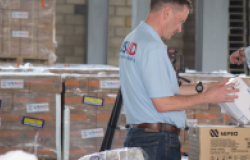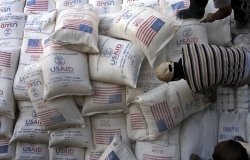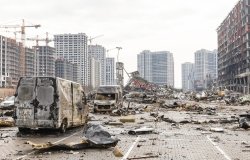Smart Take | Taiwan Earthquake: A Testament to Resilience Amid Vulnerability
Despite Taiwan's recent powerful earthquake, which could have had catastrophic consequences, the nation's engineering prowess and disaster preparedness have limited casualties. However, the event underscores Taiwan's susceptibility to both natural disasters and geopolitical tensions, particularly regarding its semiconductor industry. The earthquake prompts reflection on the global implications of Taiwan's vulnerabilities, given its crucial role in semiconductor production and its geopolitical status.
Video Transcript
Taiwan Earthquake: A Testament to Resilience Amid Vulnerability
This transcript has been lightly edited for clarity.
Taiwan has been hit by its worst earthquake in 25 years but the surprising and hopeful news is that destruction has been fairly limited. Only nine people have died. About a thousand people have been injured. Things could have been much much worse given the magnitude of this devastating earthquake.
It is testimony to Taiwan's engineering and Taiwan's preparedness for such devastating natural disasters but we are reminded that Taiwan is indeed very vulnerable to natural disasters as much as it is vulnerable to geopolitical risks.
So we've just come out of a President Xi of China and President Biden of the United States having a phone conversation and one of the declarations that the Chinese Premier said was that the first red line that must not be crossed is Taiwan. But Taiwan's vulnerabilities are our own vulnerabilities too, for a number of reasons.
One of course is that Taiwan is the world's biggest semiconductor manufacturing location in the world. Another issue of course is that had the Taiwanese earthquake been far more disastrous than it had been, it would have required greater international support. However given the unique status of Taiwan not being a sovereign nation.--i would have been difficult and it is difficult for the international community to provide aid to Taiwan given the geopolitical tensions between Taiwan and China.
So as we look to the consequences of this latest earthquake in Taiwan, we are of course relieved that the devastation had been relatively limited but this also provides an opportunity for us to think yet again about the vulnerabilities that Taiwan faces and that Taiwan's vulnerabilities are actually the vulnerabilities of the world as well.
Guest

Shihoko Goto
Shihoko Goto is the director the Indo-Pacific Program at the Wilson Center. Her research focuses on the economics and politics of Japan, Taiwan, and South Korea, as well as US policy in Northeast Asia. A seasoned journalist and analyst, she has reported from Tokyo and Washington for Dow Jones and UPI on the global economy, international trade, and Asian markets. A columnist for The Diplomat magazine and contributing editor to The Globalist, she was previously a donor country relations officer for the World Bank and has been awarded fellowships from the East-West Center and the Knight Foundation, among others.
Read MoreHosted By

Indo-Pacific Program
The Indo-Pacific Program promotes policy debate and intellectual discussions on US interests in the Asia-Pacific as well as political, economic, security, and social issues relating to the world’s most populous and economically dynamic region. Read more













